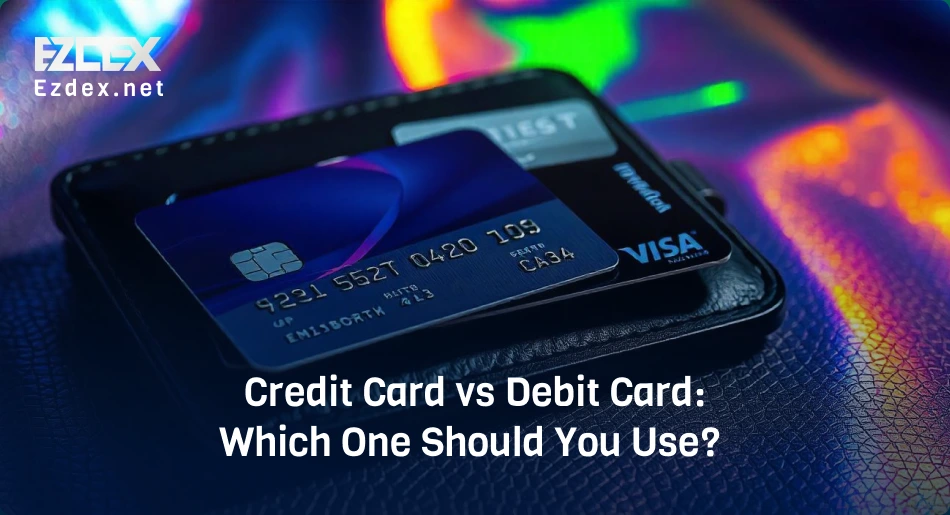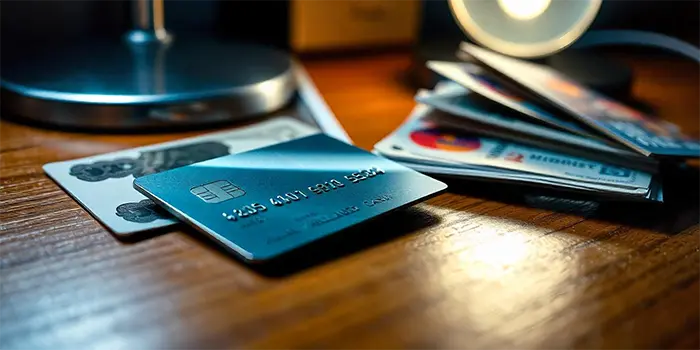Credit Card vs Debit Card: Which One Should You Use?

When it comes to managing finances, credit cards and debit cards are two of the most commonly used tools among user in different countries all around the world. While they may look similar and are often used interchangeably, their functions, benefits, and potential drawbacks vary significantly. Understanding the differences can help you decide which card suits your financial goals and lifestyle. So read this credit card vs debit card guide to learn more!
Table of Contents
What is a Credit Card?
A credit card allows you to borrow money from a bank or financial institution up to a certain limit.
Some credit cards like Amex Centurion Card has no credit limit!
You repay the borrowed amount either in full or in installments, with the possibility of incurring interest if not paid in full by the due date.
Features of Credit Cards include:
- Credit Limit: A pre-set borrowing limit.
- Rewards and Perks: Cashback, travel miles, and loyalty points.
- Interest Rates: Charges on unpaid balances.
- Building Credit: Helps establish and improve credit scores when used responsibly.
- Fraud Protection: Often comes with robust security measures.
What is a Debit Card?
A debit card is linked directly to your checking or savings account.
When you use a debit card, funds are immediately deducted from your account to cover the transaction.
Features of Debit Cards include:
- Direct Account Access: Funds are drawn directly from your bank account.
- No Debt Risk: You can only spend what you have.
- Fewer Fees: Generally, no interest or annual fees.
- ATM Access: Convenient for withdrawing cash.
Also Read: How to Deposit Cash with ATM Machine in Dubai & UAE - Limited Rewards: Some debit cards offer cash-back programs, but they’re less common.
Key Differences Between Credit Cards and Debit Cards
Here’s a table outlining the key differences between credit cards and debit cards. Reviewing this table will help you to realize which one to use in different circumstances and cases.
|
Feature |
Credit Card |
Debit Card |
|
Source of Funds |
Borrowed funds from the credit card issuer. |
Funds directly deducted from your bank account. |
|
Spending Limit |
Pre-approved credit limit by the issuer. |
Limited to the available balance in your account. |
|
Interest |
Interest charged on outstanding balances. |
No interest applies, as you use your own money. |
|
Usage Requirement |
Requires repayment of borrowed funds. |
No repayment needed since you're using your own money. |
|
Rewards & Benefits |
Often offers rewards, cashback, and perks. |
Fewer rewards or benefits, if any. |
|
Fraud Protection |
Generally, offers stronger fraud protection. |
Basic fraud protection, often limited to account balance. |
|
Credit Score Impact |
Affects your credit score based on usage. |
Does not directly impact your credit score. |
|
Overdraft Option |
No overdraft; charges beyond the limit are declined. |
May allow overdraft, subject to bank terms. |
|
Best for |
Large purchases, building credit, rewards. |
Everyday transactions, managing budget. |
|
Liability |
Consumer liability for unauthorized charges is limited (varies by law). |
Limited liability for unauthorized transactions, usually tied to quick reporting. |
|
Fees |
May include annual fees, interest, late fees, etc. |
Typically, low or no fees, except for overdrafts or out-of-network ATM usage. |
Advantages of Credit Cards
Some of the most significant advantages of credit cards that make them popular and useful are mentioned and explained in this section.
Building Credit History: Responsible use improves your credit score, essential for future loans or mortgages.
Credit history is a record of your borrowing and repayment behavior, maintained by credit bureaus. It includes details like the types of credit you have, how much you owe, and whether you pay on time.
💡To learn more about credit history, read the article linked.
Rewards and Benefits: Earn points, cashback, and travel perks. Points can be redeemed for merchandise, gift cards, travel bookings, or statement credits.
Emergency Funds: Useful for large, unexpected expenses. Emergencies like medical bills, car repairs, or sudden travel can arise when you least expect them. A credit card provides peace of mind, reducing stress and protecting your long-term financial goals.
Credit cards can be used instantly for emergencies, making them particularly useful when cash isn’t readily available.
Purchase Protection: Many credit cards offer extended warranties and dispute resolution. This feature can help protect you from damage, theft, or loss of items you’ve bought, offering financial reassurance for significant or high-value purchases.
Disadvantages of Credit Cards
There are some disadvantages too. It is important to consider them before using credit cards.
Debt Risk: Mismanagement can lead to high-interest debt.
Fees: Annual fees, late payment penalties, and foreign transaction fees.
Complexity: Requires discipline to avoid financial pitfalls.

Advantages of Debit Cards
Let us take a look at most significant advantages of debit cards:
Budget Control: Spending is limited to available funds, preventing overspending. Debit cards are directly linked to your checking or savings account. This means you can only spend what you have in your account. So, you can easily track and manage expenses without the risk of accumulating debt.
No Interest or Debt: Since debit cards draw directly from your account, there’s no borrowing involved. As a result, you won’t incur interest charges like you would with credit cards. You spend only what you own, avoiding the financial burden of repaying borrowed funds. You don’t have to worry about paying interest on outstanding balances or late payment fees.
ATM Access: Debit cards allow you to withdraw cash directly from ATMs, making them an essential tool for accessing money when needed. This Provides a quick solution for situations where only cash is accepted (e.g., local markets or small vendors).
Fewer Fees: No annual or interest fees in most cases. Debit cards are generally free to use as long as you maintain sufficient funds in your account.
Disadvantages of Debit Cards
You always need to be aware of disadvantages to have the chance to take care of them.
Limited Fraud Protection: Liability may depend on prompt reporting.
No Credit Building: Doesn’t help with credit history.
Fewer Rewards: Limited perks compared to credit cards.
Overdraft Risks: Potential for overdraft fees if spending exceeds the account balance.
When to Use a Credit Card vs a Debit Card
Both credit cards and debit cards have their unique advantages and disadvantages. The choice depends on your financial situation, spending habits, and goals. For those who prioritize building credit and earning rewards, a credit card might be the better option. However, if you value simplicity and wish to avoid debt, a debit card could be the way to go.
Use credit card:
- For large purchases to leverage purchase protection.
- When you want to earn rewards.
- To build or improve your credit score.
- During travel for convenience and security.
Use debit card:
- For everyday purchases within your budget.
- To avoid debt or interest charges.
- When you need quick cash from an ATM.
- For those new to financial management or with a tight budget.
Consider your lifestyle and financial objectives carefully to make an informed decision.
Read the latest news and announcements in this section.
Read the latest tutorials about payment service providers in this section.
You can access full guides and tutorial to use EZDEX services in this section.
Step by step tutorials and photo guides are available in this section.
Access the latest information about financial and economical matters in Turkey in this section.
Access the latest information about financial and economical matters in UAE in this section.
Explore expert guides, tips, and strategies for understanding and working with gold. Learn everything from basics to advanced knowledge.